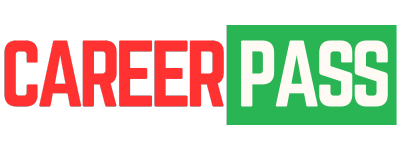How to Land Your First Job With Zero Experience – Real Tips

Introduction: The Job Hunt Dilemma When You Have No Experience
Everybody’s been there — looking at job ads that require “2-3 years of experience” for roles that are even entry-level. It’s difficult to find an entry-level job without knowledge, but you won’t get experience without an employment. What’s the reality? You could end this cycle. Learn how to get your first job without any prior experience begins with a simple mental shift: you are more valuable than you believe.
In the current competitive employment market, companies are seeking beyond traditional qualifications. They are looking for determination, attitude and flexibility as well as soft abilities which usually are more important than a lengthy resume. This article will lead you through practical, real-world strategies to assist you in landing the first job of your career and launch your career – no need for experience.
Understanding Why Experience Isn’t Everything
Employers Value Potential Over Perfection
The majority of hiring managers are aware that applicants who have never worked before do not have formal training. What they are really looking at is potential — the desire to develop, adapt to the job. If you’re able exhibit enthusiasm, curiosity and dependability it will be easy to stand out.
The Power of Transferable Skills
There’s a chance that you do not have work experience however, you have transferable abilities that include teamwork, communication and solving problems. These are universal skills which can be applied to any job in marketing, customer service or IT.
Step 1: Identify Your Strengths and Soft Skills
Self-Assessment: What You’re Already Good At
Start by identifying your natural strengths. Are you proficient in writing, organizing or managing groups? You might be the one to turn to for solving issues. Your talents are easily translated into skills that are ready for work.
Examples of Soft Skills Employers Love
Here are a few highly sought-after soft abilities:
-
communication: Being able to convey thoughts clearly.
-
Modularity: Staying flexible when plans are changed.
-
teamwork Collaboration with other people.
-
Time Management Time Management: Meeting deadlines effectively.
-
Critic thinking: Making smart, well-informed choices.
Step 2: Build Relevant Experience Without a Job
Volunteering and Internships: Your Hidden Goldmine
Volunteering is among the fastest methods to gain knowledge. Schools, non-profits and local events all need help – and this helps build credibility.
Freelancing and Gig Work: Gain Real-World Exposure
Sites like Fiverr, Upwork or even social media platforms can assist you in securing small-scale freelance work. You’ll not only improve your skills, but also build your portfolio.
Personal Projects and Portfolios That Prove Your Skills
If you’re into design, create sample logos. If you’re a writer create your own blog. If you’re a beginner in coding make a website for yourself. Employers appreciate seeing evidence of your the passion.
Step 3: Create a Winning Resume Without Job Experience
How to Structure a Functional Resume
Instead of the typical “chronological” resume, use an Functional format that emphasizes the skills and accomplishments rather than the job title.
What to Highlight Instead of Experience
Include:
-
Relevant coursework
-
Projects or volunteer work
-
Personal accomplishments
-
Hard and soft abilities
Pro Tips: Use action verbs such as created, managed supported, organized to enhance your resume’s sound. professional.
Step 4: Write a Compelling Cover Letter That Tells Your Story
How to Stand Out Through Storytelling
A cover letter for your resume is the chance to demonstrate the reasons you’re passionate about your job, even if without prior experience. Make use of it to demonstrate passion and your potential.
Example: Turning “No Experience” Into a Strength
“While I may not have direct industry experience, my volunteer work coordinating local events taught me how to manage deadlines, communicate clearly, and work in a team environment — skills I’m eager to apply in this role.”
Step 5: Master the Job Search Strategy
Where to Find Entry-Level Opportunities
Take a look beyond the big job boards. Try:
-
Pages for career pages of the company
-
Local listings of local businesses
-
LinkedIn entry-level filters
-
Career centers at colleges
The Importance of Networking and Referrals
About 70 percent all jobs are obtained through networking. Get in touch with your mentors, former students or LinkedIn acquaintances — they tend to be willing assist than you imagine.
Leveraging LinkedIn for Career Growth
Make sure you optimize Your LinkedIn profile. Create a compelling headline, such as “Aspiring Marketing Coordinator | Creative Thinker with a Passion for Growth.” Share your insights, post comments on industry news and share your education journey.
Step 6: Nail the Interview (Even as a Beginner)
Common Interview Questions for First-Time Job Seekers
The fact that you’ve been invited to an interview indicates that your resume has been successfulnow is the time to make an impression in the flesh (or via Zoom). Expect questions like:
-
“Tell me about yourself.”
-
“Why do you want to work here?”
-
“What’s your biggest strength?”
-
“Where do you see yourself in five years?”
-
“Tell me about a time you overcame a challenge.”
These aren’t bogus questions. Employers are just trying to learn about your personality, motivation and overall attitude.
How to Respond with confidence and integrity
If you don’t have experience directly, concentrate on the lessons you’ve learned and how you’ll implement it. For instance:
“I may be new to this industry, but I’ve completed several online courses in customer service and volunteered in a community program that taught me how to communicate with diverse groups effectively.”
Tips: Practice out loud. Your confidence increases with repeated practice. There aren’t any the perfect answer, you require truthful and sensible ones.
Step 7: Keep Learning and Upskilling Continuously
Free Online Courses That Boost Your Resume
There’s no reason to remain stuck since so many educational resources are available for free. Here are a few platforms to investigate:
-
Coursera Coursera Professionally-issued certificates from the top universities.
-
LinkedIn Education Short courses based on skills.
-
Google Digital Garage Tech and marketing courses for free.
-
Khan Academy – ideal for the beginning of learning.
Certifications That Show Commitment and Growth
The addition of certificates to your resume immediately increases your credibility. Some of the most sought-after ones are:
-
Google Analytics Certification
-
Microsoft Office Specialist
-
HubSpot Inbound Marketing
-
CompTIA IT Fundamentals (for tech novices)
They show that even if you don’t have knowledge you’re determined to learn.
Step 8: Adopt a Growth Mindset and Stay Persistent
Overcoming Rejection: Why “No” Doesn’t Mean Never
Rejection can be painful, particularly when you’re only beginning your journey. However, each “no” is feedback -It teaches you how you can do better the next time. A lot of successful professionals had to endure many rejections prior to getting their first job.
The trick is to adapt, learn and continue to apply. Every interview will help you improve your confidence and skills in communication.
Building Confidence Through Small Wins
The confidence builds gradually. Celebrate small victories:
-
Achieving a degree
-
An interview
-
Update your resume
-
Receiving feedback
Every step is important. The process of achieving success isn’t a one-time eventit’s the result of constant effort.
Real-Life Success Stories: People Who Started With Nothing
-
Sarah (Marketing Associate): Started by helping out with the local charity’s social media page. In just six months she created an online portfolio and was offered the full-time position.
-
Ahmed (Junior Designer): Learned coding by watching YouTube tutorials for free YouTube tutorials. I created a few personal projects and posted them on GitHub and was then employed by a startup.
-
Emily (Customer Customer Support Representative): Had no prior experience in the office, but she used her experience in retail to demonstrate the ability to communicate — landing her first remote position.
Their experiences prove that determination beats experience each time.
Common Mistakes to Avoid When Searching for Your First Job
-
You can apply blindly without making any changes to your cover letter or resume.
-
We’re not paying attention to small companies Startups often employ based on their potential rather than previous experience.
-
Undervaluing unpaid opportunities like internships or volunteering.
-
A lack of presence on the internet A bare LinkedIn profile could harm your chances.
-
Don’t give up too soon — perseverance is the most valuable resource you have.
FAQs About Landing a Job With Zero Experience
1. Do I have the chance to find a job without previous experience?
Yes! Numerous employers are interested in hiring people who have enthusiasm for learning, soft skills, and a desire to take on the challenge of learning. All you have to do is market yourself well.
2. What jobs could I apply for without previous experience?
Find the entry-level as well as junior posts like assistant positions Customer service, assistant roles and social media coordinators, and trainee programs.
3. How can I be noticed in my application?
Present results — regardless of whether they are derived from school work or volunteer work personal efforts. Include metrics such as “Increased social engagement by 40%.”
4. Are networks really as important?
Absolutely. Connecting with people on LinkedIn often opens the doors to opportunities which job sites don’t. Participate in workshops, online events, or meet professionals via LinkedIn.
5. Should I apply for work in which I don’t meet the criteria?
Yes. Job descriptions typically contain “ideal” candidates. If you’re able to meet 60-70 percent of the requirements then submit your application. Passion can surpass previous experience.
6. How long will it take to land the first position?
It’s a bit different. Some people get one in a matter of weeks, whereas others need months. Continuously applying, learning and advancing makes the greatest difference.
Conclusion: Your First Step Toward Professional Success
The first job you get without any experience isn’t just an issue of luck, it’s about planning as well as confidence and perseverance. Everyone you admire today came from the same spot without any experience, just desire.
Make sure you are building relationships, skills and trustworthiness. Start small: volunteer, take classes how to apply, and repeat. Soon you’ll be not just working but also with the basis for a rewarding career.
Remember that your first job won’t determine your future, it just kicks off it.
External Source:
To enhance your resume, you should take a look at the Indeed Career Handbook to Writing a an Effective Resume Despite No experience.



